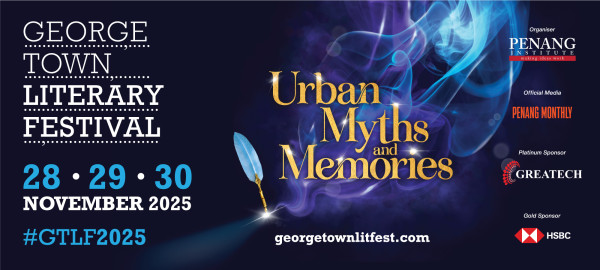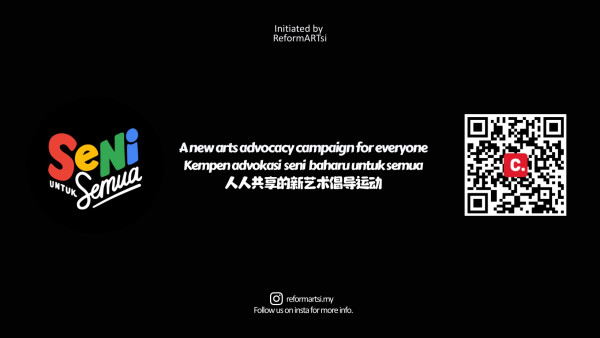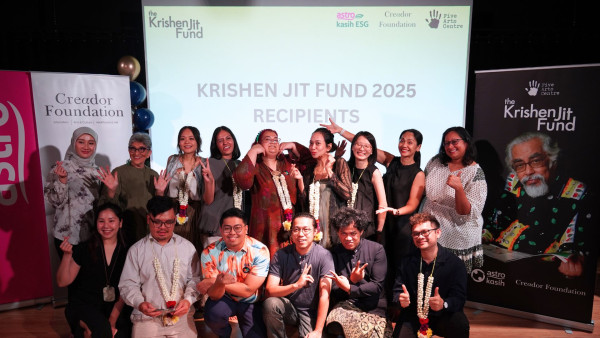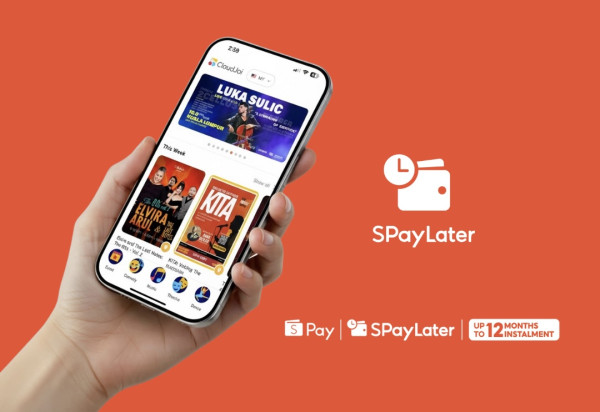
George Town Festival welcomes a fresh core team as it looks ahead to the coming year with a dynamic theme—Here and Now. We are delighted to have Ling Tang, the newly appointed Artistic Director, share her vision and insights into what Here and Now signifies for the festival. As they invite submissions for upcoming projects, this interview provides valuable context for potential contributors. If you're considering submitting a proposal, take a moment to explore Ling Tang's perspective on the festival's direction and the significance of Here and Now. Gain a deeper understanding of the theme and how it aligns with your creative endeavors. For submission details, visit https://www.georgetownfestival.com. Your journey with George Town Festival begins here and now!

Ling Tang
Artistic Director of George Town Festival 2024
Vision and Approach
Can you share your vision for the performing arts festival and how you see it evolving under your direction?
Ling Tang: First of all, I want to express gratitude to the previous organisers for laying the foundation of the festival. Over the past 14 years, GTF has become a crucial arts festival in Malaysia, gaining international attention and creating beautiful memories for participants. As we enter the 15th year, GTF, like a growing youth, is contemplating its identity. What kind of festival do we need? What is our imagination for the festival? From these reflections, we have decided to explore the possibilities boldly. Hence, the theme for 2024: "Here and Now." We invite everyone to return to the festival's origin in George Town, to explore, discover, and imagine together.
What inspired you to apply for the position of artistic director for this festival?
LT: Firstly, it was Chin Teo from Kerson Media, who is also the festival's director, inviting me to collaborate. She is a long-time friend and a seasoned theatre professional. Both of us share a deep concern for Malaysia's artistic environment, and we both want to contribute something meaningful to this land. This marks my second stint as an artistic director for a festival, following the 2014 Kakiseni International Arts Festival, and a 13-hour "Day out of Time online arts festival" prepared and produced within 20 days during the 2021 pandemic. I have always been involved in these adventurous endeavours.
How do you envision the festival contributing to the cultural and artistic landscape of the community?
LT: We are working towards this goal. My perspective is about breadth and foresight. Beyond presenting a one-sided spectacle, showcasing our nation's rich cultural values and societal facets, we aim to provoke diverse and profound reflections. We cherish the value of different works, providing a stage for artists from different backgrounds and styles to express their ideas and creations. We want to create bridges for dialogue between artists and the public, ensuring freedom in creation and expression while stimulating the birth of more inspiration. If possible, we aim to engage in dialogues with officials/policy-makers, hoping to raise more awareness of the artistic ecosystem.
Expectations for Applicants
What qualities and skills are you looking for in potential applicants for artistic contributions to the festival?
LT: We hope to receive works that express contemporary ideas boldly and creatively, expanding the horizons and artistic experiences for Malaysian audiences.
Can you describe the type of artistic programming or projects you hope to see from the selected participants?
LT: We welcome applications from artists of all genres and disciplines. However, if you have a program that perfectly fits into an unconventional space within the heritage area, a participatory or site-specific project, or a cross-disciplinary project, you will grab our extra attention.
How do you see the festival embracing diversity and inclusion in its selection of artists and performances?
LT: This is certainly very important; diversity and inclusion can eliminate biases and foster mutual respect. To achieve this, we must first embrace each other's uniqueness, uphold its value, accept, respect, and embrace differences, rather than exclude. Only then can we truly realise the value of diversity and inclusion, and only then can art truly fulfil its purpose.
Collaboration Preferences
What role do you believe collaboration plays in the success of a performing arts festival, and how would you foster collaboration among artists?
LT: Firstly, GTF is an arts festival instead of a performing arts festival, including different genres, from performing arts to visual art and all kinds of disciplines. As a theatre practitioner, my work has always revolved around collaboration. Through mutual stimulation, we can broaden perspectives and create opportunities for mutual learning. Not every collaboration is necessarily "successful"; more often than not, it is "unsuccessful." However, these "failures" create meaning and value for us. They stimulate further reflection and prompt us to become better versions of ourselves. In terms of promoting collaboration, we have indeed actively facilitated various collaborations in different projects, promoting interdisciplinary and cross-regional cooperation.
Are you open to interdisciplinary collaborations, and how might these enrich the overall festival experience?
LT: Definitely. Artistic creation is inherently about exploring possibilities, and audiences enjoy the surprises brought by new collisions and forms. Supporting cross-disciplinary collaborations allows the festival to have a more forward-looking perspective. Therefore, we enthusiastically invite all interdisciplinary collaborations and encourage you to submit your proposals to us quickly.
Community Engagement
How do you plan to engage with the local community and ensure the festival has a positive impact on both artists and residents?
LT: An excellent question, and we recognise the urgency of this issue. From the beginning of our bidding proposals, we have advocated for the Artist in Residence programme. We aim to bring artists into the community, engage in dialogues and interactions with residents, and produce works relevant to the community. We will announce detailed application information soon.
In what ways do you see the festival contributing to the education and cultural enrichment of the community?
LT: This should not solely be the responsibility of a festival; cultural and arts education and promotion should be driven by national policies and government/local government initiatives. Festivals can complement and take on a partial responsibility once these policies are in place. Given our resource constraints, it's challenging to cover so many aspects. Nevertheless, we are actively reaching out to schools, hoping to involve more students and young people in the festival. Moreover, by showcasing a diverse and inclusive arts festival and actively inviting the public to participate, we have already generated a certain level of educational and cultural enrichment, haven't we?
Long-Term Goals
What are your long-term goals for the festival during your tenure as artistic director?
LT: I only have a two-year tenure, so it seems challenging to establish long-term goals. I can only hope that during these two years, I can broaden the scope of the festival slightly and provide a little stimulation to the local artistic ecosystem. Perhaps it's not about providing answers but, instead, posing a series of questions. As an outsider (non-resident of Penang), I offer my observations and imagination of Penang and George Town. Additionally, during these two years, I hope to strengthen regional artistic exchanges and connections in Southeast Asia through the festival.
How do you plan to measure the success of the festival under your leadership?
LT: I will listen humbly to various opinions, stay firm in my goals, and boldly implement them. Learning to communicate better with the team to ensure everyone moves in the same direction. I cannot guarantee success or failure, but as long as we take each step seriously, face everything honestly, and remain open to all situations, that would be good enough.
-Large-web.jpg)

-web.jpg)


